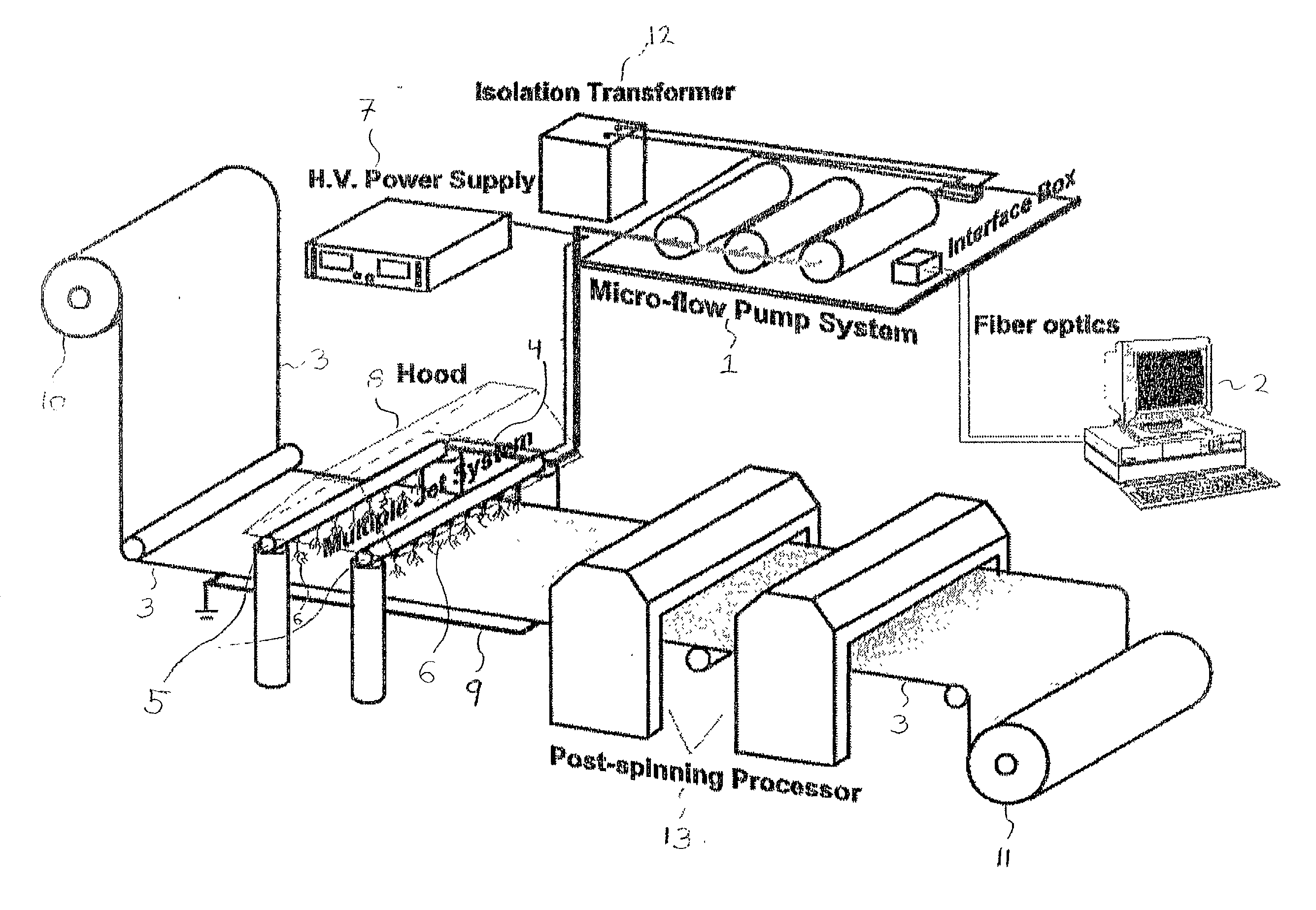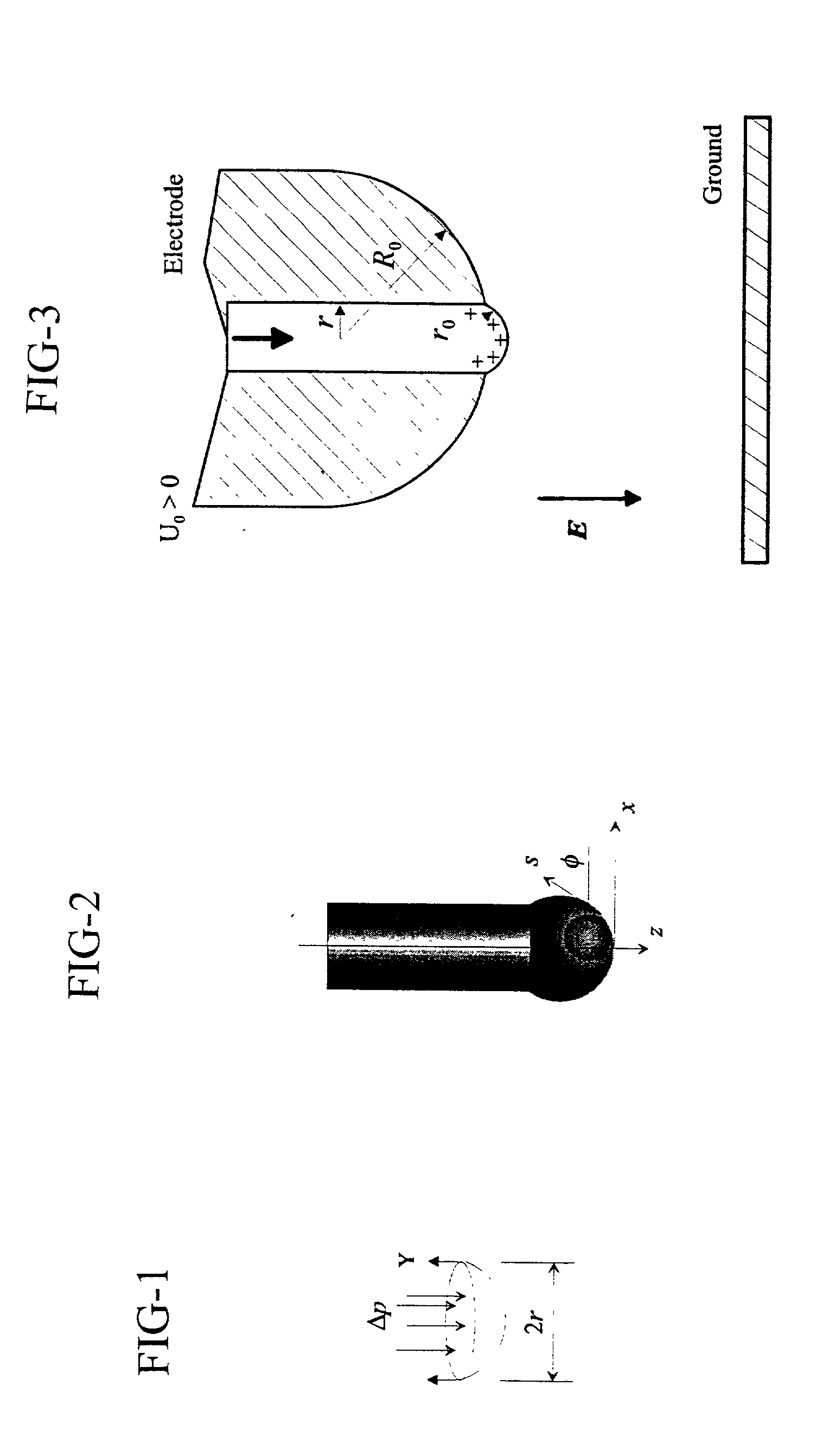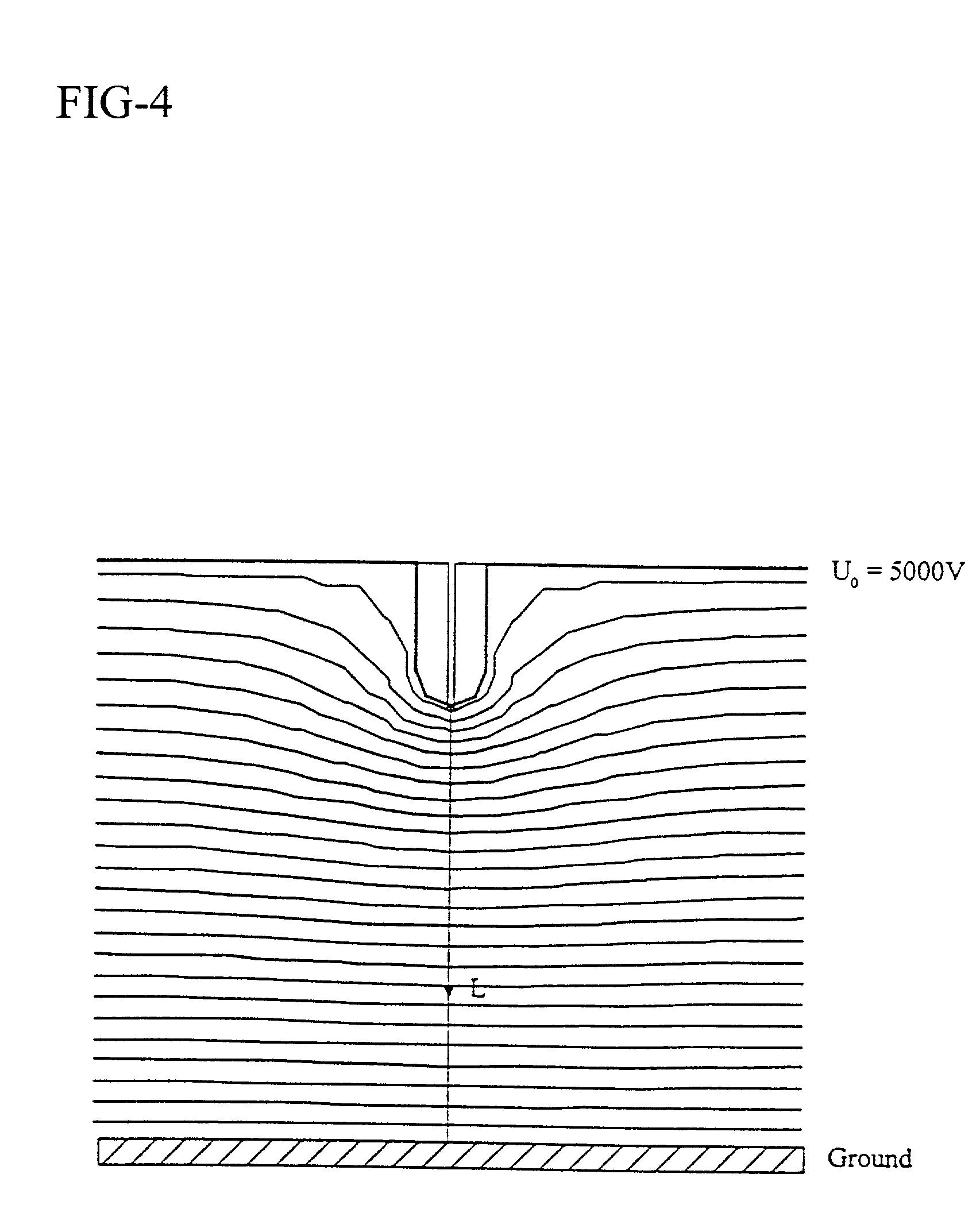Apparatus and methods for electrospinning polymeric fibers and membranes
a technology of applied in the field of apparatus and methods for electrospinning polymer fibers and membranes, can solve the problems of low total yield of the process, unstable liquid droplets, and no practical industrial process for electrospinning membranes containing a high percentage of small particles, etc., and achieve the effect of improving the control of fiber formation and transportation
- Summary
- Abstract
- Description
- Claims
- Application Information
AI Technical Summary
Benefits of technology
Problems solved by technology
Method used
Image
Examples
example 1
[0136] A membrane according to the invention was prepared as follows: a 30 wt % PLG copolymer / DMF solution was prepared by slowly dissolving PLG copolymer pellets (inherent viscosity of 0.55-0.75. Birmingham Polymers Inc., AL) into an N,N-dimethyl formamide (DMF) solvent at room temperature. The solution was then loaded into the 5 ml syringe fitted with a gauge 20 needle, and delivered through a Teflon tube (0.03" ID) to the exit hole of an electrode having a diameter of 0.025". The solution was pumped and controlled by a syringe pump (Harvard Apparatus "44" series, MA) at a flow rate of 20 microliters / min. A 25 kV positive high voltage (by Glassman High Voltage Inc.) was applied on the electrode. The distance from the tip of the electrode to the grounded collecting plate was 15 cm. A tiny electrospinning jet was formed and stabilized in 30 seconds under these conditions. The collecting plate was movable and controlled by a stepper motor. The collecting plate was continually moved a...
example 2
[0137] A membrane according to the present invention, fabricated by a multi-jet electrospinning process, was prepared as follows: an 8 wt % polyacrylonitrile (PAN) (Aldrich Chemical Company, Inc.) / DMF solution was prepared by slowly adding and dissolving the polymer powders into an organic solvent, which was DMF (N,N-dimethyl formamide), at room temperature. After the solution was completely mixed, it was then loaded into 6 individual syringes, each with a volume of 5 mL. The syringes were fitted with gauge 20 needles and the solution was delivered through Teflon tubes (0.03" ID) to 6 electrodes, each having a tiny hole with a diameter of 0.025". The geometry of the electrodes was designed in such a way so that the largest electric field strength could be achieved at the tip of the electrode under a given electric potential, which included a hemispherical tip with a radius of 0.125 inch and a central hole of 0.025 inch diameter. The polymer solution was finally pumped and controlled...
example 3
[0138] A polymer solution suitable for electrospinning, which contained a drug, was prepared as follows: A sample of Poly(DL-lactide) ("PLA") purchased from Birmingham Polymers, Inc., Birmingham, Ala. (Product No. D98120) having a weight average molecular weight of 1.09.times.10.sup.5 g / mole and a polydispersity of 1.42 was stored in a vacuum oven at room temperature. The pellets were dissolved in DMF purchased from Fisher Scientific, Fair lawn, N.J. to form a 25 wt % solution. The antibiotic drug used was Mefoxin .TM. from Merck & Co., Inc., West Point, Pa. The antibiotic was dissolved in distilled water and then mixed with PLA / DMF solution in appropriate amounts to form the solution with a PLA / drug ratio of 9:1. A stable jet was formed using this solution in the electrospinning process described in Example 1.
PUM
| Property | Measurement | Unit |
|---|---|---|
| diameter | aaaaa | aaaaa |
| diameter | aaaaa | aaaaa |
| speed | aaaaa | aaaaa |
Abstract
Description
Claims
Application Information
 Login to View More
Login to View More - R&D
- Intellectual Property
- Life Sciences
- Materials
- Tech Scout
- Unparalleled Data Quality
- Higher Quality Content
- 60% Fewer Hallucinations
Browse by: Latest US Patents, China's latest patents, Technical Efficacy Thesaurus, Application Domain, Technology Topic, Popular Technical Reports.
© 2025 PatSnap. All rights reserved.Legal|Privacy policy|Modern Slavery Act Transparency Statement|Sitemap|About US| Contact US: help@patsnap.com



